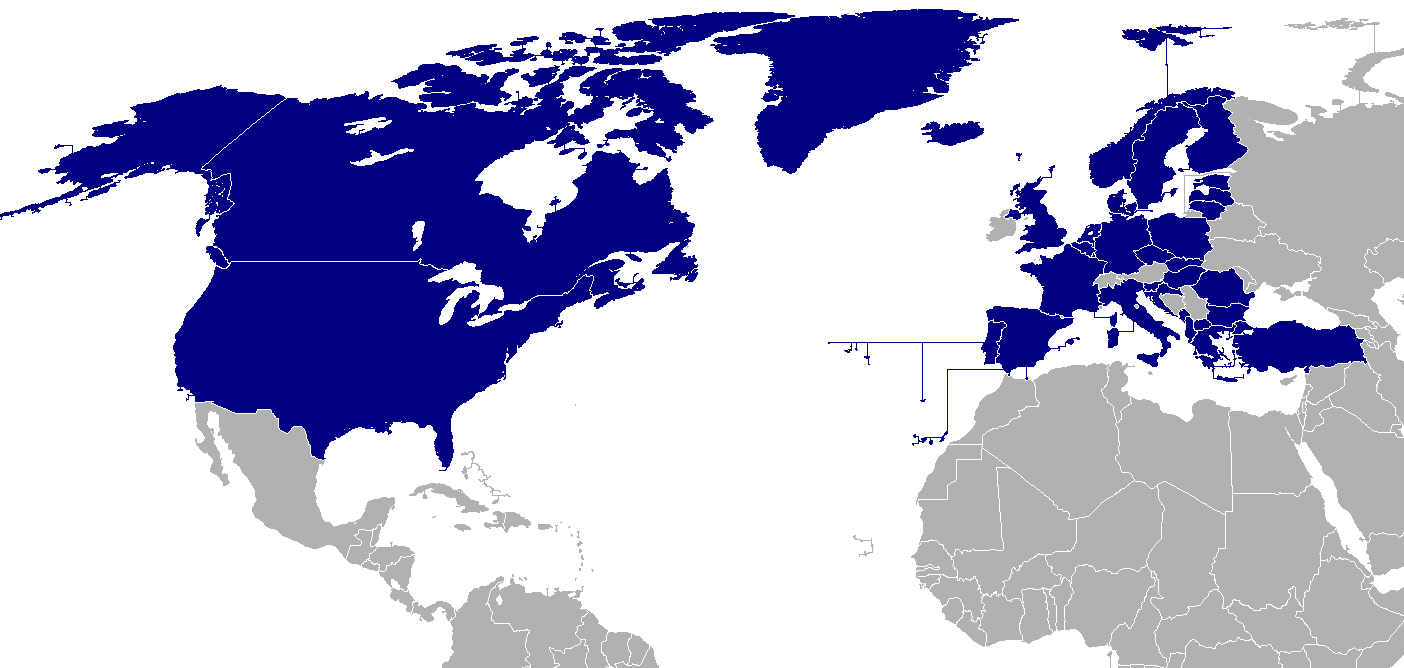During the press conference, the two presidents spent most of their talking time complimenting each other (Putin said of "George": "I always appreciated his superior human qualities: honesty, openness and ability to hear a partner."), and looking fondly upon their seven years as statesmen and their management of difficult US-Russian relations.
Why the warm bonds? The US and Russia have much to quarrel over; Russia's human rights problems and natural gas brinksmanship worry US allies in Europe, and US plans for missile defense and ever-increasing NATO expansion threaten to successfully contain Russia into a future of dilapidated regionalism. But as he confessed in his "Person of the Year" interview with Time, Putin has a great deal of respect for Bush's dedication to his own country's strategic interests, willingness to "do what it takes," and tough-yet-respectful negotiating strategy. I suspect the two have become friends in the last seven years.
The next US president and Medvedev may not get along quite so well, unfortunately. Assuming Clinton is beaten by Obama, the Democrat candidate's "soft" foreign policy stances are likely to garner little respect from Putin's protege, and McCain's stance of removing Russia from the G-8 is not only an aggressive anti-Russian stance, but it denies Russia the respect that Bush has continued to give it, despite competition.
Pretty talk aside, Bush and Putin's meeting did little to reconcile the differences the US and Russia face on missile defense for Eastern Europe (the Czech Republic and Poland are already on board with US plans for installations in the next few years), and installations are likely to move forward.
Nonetheless, Putin scored a victory in NATO's most recent meeting in Bucharest, in which France and Germany vetoed invitations to NATO to the former Soviet republics of the Ukraine and Georgia. French and German representatives stressed they did not oppose in principle the admission of these two states, but instead urged that Russian backlash (in particular in the form of natural gas cutoffs) would make the move not worth their while yet. France and Germany may well be looking to increase their energy independence before allowing these two states in.

Unfortunately, both of them are only barely pro-Western, and only for the moment. They both have very large pro-Russian minorities that have protested vehemently becoming Western pawns against Russia. In Ukraine, the colors red and orange continue to stand divided across the Dnipro river, and are unlikely to come to terms soon; Ukraine will remain a battlefield for Western and Russian influence.
NATO did make progress at its Bucharest meeting, extending invitations to Albania, Croatia, and Macedonia (though Greece managed to put a rather silly condition of semantics into the invitation) for membership; they are all quite likely to accept. With the addition of these three nations, NATO's membership will reach a whopping 29 states, 12 of which were added after the fall of the Soviet Union.

While Russia scored a victory in keeping the Ukraine and Georgia from siding with the West, NATO's membership continues to grow, and its attempts to drive a wedge between NATO member states has failed. NATO continues to symbolize the most powerful and effective military coalition ever created, and member states have continued to respect each other's wishes and reach consensus for decisive action when needed, despite massive size. If a strong and powerful NATO is Russia's primary worry, then worry it should. NATO's drive into the once-volatile Balkans, re-integration of France, and near-victory on inviting Ukraine (Russia's most critical buffer-state) all mean that the organization's power and ambition are only growing.
1 comment:
Kawaii... <3
Post a Comment